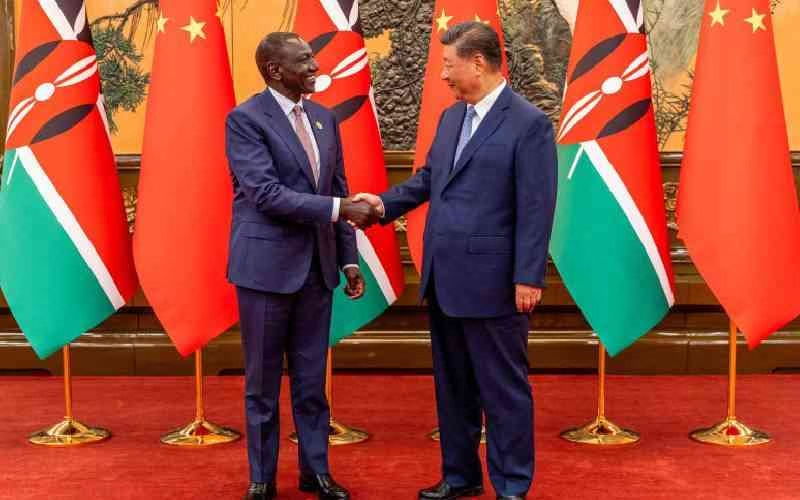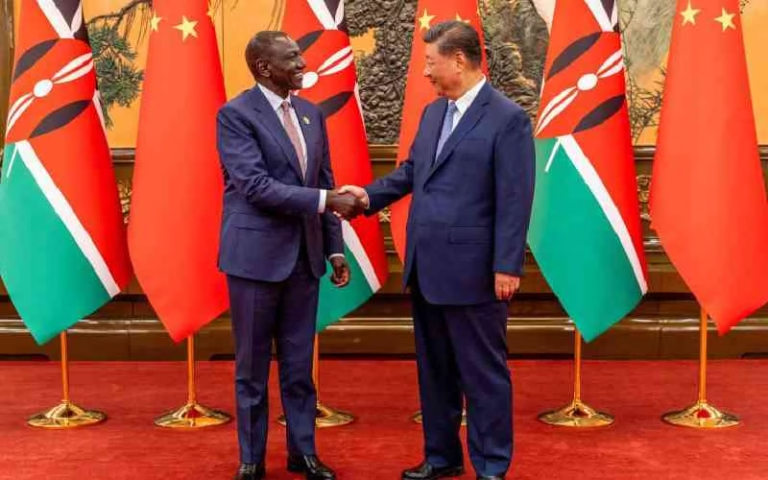
A fresh wave of geopolitical tension has emerged following Kenyan President William Ruto’s high-profile visit to China in April 2025. The United States Senate is now openly questioning Kenya’s strategic loyalty, citing concerns over Nairobi’s growing alignment with Beijing amid intensifying global competition between the two superpowers.
The visit, which culminated in the announcement of a “China-Kenya Community with a Shared Future for the New Era,” has triggered unease in Washington. U.S. lawmakers are calling for a reassessment of the U.S.-Kenya partnership, a move that could complicate Kenya’s diplomatic balancing act.
President Ruto’s state visit to China was marked by significant symbolism and substantial bilateral agreements. Hosted by Chinese President Xi Jinping, the two leaders announced a new strategic partnership aimed at deeper cooperation in infrastructure, trade, technology, agriculture, and security.
Among the major deals signed were:
- 20 Cooperation Agreements, spanning various sectors.
- Financing for 15 Rural Roads via a 2 billion RMB concessional loan.
- Discussions to Extend the Standard Gauge Railway (SGR) to Kisumu and Malaba.
- Plans to Strengthen Technical and Vocational Training, digital innovation, and climate adaptation initiatives.
In a speech delivered in Beijing, Ruto described Kenya and China as “co-architects of a new world order,” a statement widely interpreted in Washington as a political signal aligning Nairobi closer to Beijing’s global vision.
In response, U.S. Senator Jim Risch, Ranking Member of the Senate Foreign Relations Committee, voiced strong concerns over what he called a “troubling alignment” with China. He criticized President Ruto’s rhetoric and questioned whether the United States should continue deepening military and economic ties with a country that appears to be leaning toward America’s foremost strategic rival.
The timing is particularly sensitive. In May 2024, the United States granted Kenya the status of Major Non-NATO Ally, a designation that offers privileged access to U.S. defense cooperation, funding, and military technology. This made Kenya the first country in Sub-Saharan Africa to receive such a status.
Now, with Nairobi seemingly moving closer to Beijing, U.S. policymakers are reevaluating whether this designation still aligns with Washington’s strategic interests.
Kenya’s foreign ministry has since reiterated that the country remains committed to a multi-aligned strategy aimed at maximizing national interest through diverse partnerships. Kenyan officials argue that engagement with China does not negate Kenya’s alliance with the United States, but rather complements its broader goal of diversifying international cooperation.
Analysts suggest that Kenya is taking a pragmatic route common among emerging economies—leveraging the competition between the West and the East to gain the best development outcomes without compromising sovereignty.
Kenya’s balancing act between the U.S. and China presents both opportunities and risks. On one hand, strategic engagement with both powers gives Nairobi access to infrastructure funding, technology, military support, and trade opportunities. On the other hand, overt signs of favoritism toward one could trigger political or economic backlash from the other.
Going forward, Kenya will need to communicate its policy intentions clearly while ensuring transparency in how international deals are negotiated. For the Ruto administration, the challenge lies in proving that its China engagement is economic, not ideological.






